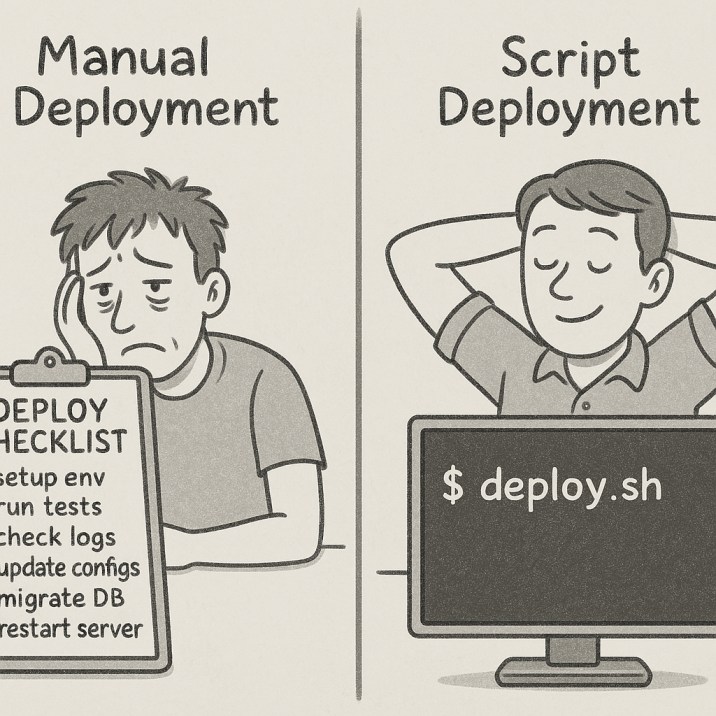Introduction
In today’s fast-paced world of technical engineering, efficiency is a superpower. Whether you’re deploying infrastructure, managing configurations, or orchestrating complex systems, the ability to automate and parallelize your work can transform how you operate. Tools like GitHub Copilot amplify that ability, making sophisticated scripting more accessible than ever.
Some of the personal best practices, that truly made sure that any scripting is realistic.
- Comment your script, to be human readable. (Thats for anything more than 10 Lines)
- Import-CSV and Export-CSV are your friends, logging with write-output -append is a life saver
- there are more than PowerShell, bash, CMD. scripts
- a diagram for any script that has more than one IF condition, a picture is worth more than a thousand LINES.
- proper testing before running in mass. is essential for finding out the ; , and #
Why Scripting is a Game-Changer
Scripting enables engineers to work smarter, not harder. It allows you to:
- Automate repetitive or time-consuming tasks
- Ensure consistency across environments
- Minimize human error
- Scale operations quickly and reliably
Whether you’re managing ten servers or ten thousand, scripting offers the control and predictability you need.

Test Small, Deploy Big
Before deploying scripts at scale, mitigate risks by following a disciplined testing strategy:
- Use a sandbox or staging environment
- Test on a small, controlled subset
- Log everything—including outputs, errors, and system changes
- Validate results thoroughly before scaling up
Small-scale testing reduces surprises and helps catch bugs early in the lifecycle.
Always Have a Rollback Plan
Even the most well-tested scripts can fail. Always plan for recovery:
- Snapshot systems before changes
- Write idempotent scripts (safe to run multiple times)
- Include undo logic where possible
- Document manual rollback steps for edge cases
Failure is part of scale—your readiness determines how fast you recover.
Parallelize Your Work
Let scripts do the heavy lifting while you focus on strategic tasks:
- Schedule resource-heavy jobs during off-peak hours
- Use logs and alerts to monitor progress
- Break large jobs into manageable, incremental chunks
- Leverage tools like tmux, screen, or job schedulers
Parallelization isn’t just about speed—it’s about freeing your mental bandwidth.
Supercharge Scripting with Copilot
This is where GitHub Copilot shines:
- Suggests code snippets in real time
- Auto-generates boilerplate for common scripting patterns
- Assists in writing test cases and validation logic
- Provides inline documentation and best practices
Copilot turns ideas into tested scripts in minutes—like having a senior engineer pair-programming with you, anytime. Just remember to double check the work and result.

Managing Multiple Projects Efficiently
When juggling multiple deployments and responsibilities, structure is your ally:
- Use version control for all scripts and infrastructure-as-code
- Modularize scripts for reuse and maintainability
- Track progress with tools like Jira, Trello, or Notion
- Document thoroughly—future-you (or your team) will thank you
Efficiency isn’t just about speed—it’s also about clarity and coordination.
Final Thoughts
Scripting is more than automation. It’s about engineering intelligently at scale. With solid planning, robust testing, and tools like Copilot, you can:
- Scale confidently
- Recover gracefully
- Work efficiently across multiple projects
The best engineers don’t just work harder—they script smarter.


Leave a Reply